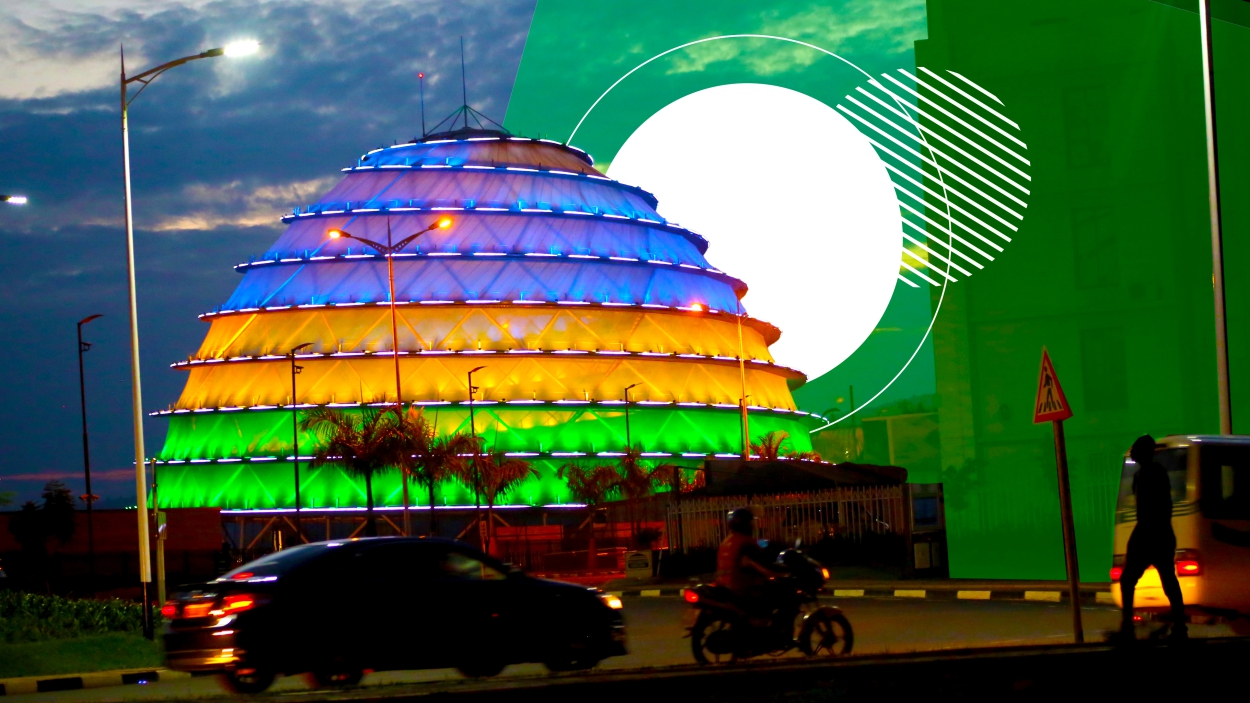Thirty years of resilience, Rwanda is a story of tragedy, triumph, and lots of smiles along the way

Kigali Convention Center embodies Rwanda's resilience and progress 30 years after liberation. PHOTO/ Business Insights Africa
One story shines brighter than ever in a world where headlines are often filled with doom and gloom. Rwanda's journey from tragedy to triumph is one such story. You read that right! Rwanda, the small country once written off as failed, has defied the odds and emerged as a beacon of resilience. And believe it or not, it's all thanks to a little thing called perseverance and maybe a sprinkle of magic.
Let's rewind the clock three decades to the aftermath of the 1994 Genocide Against the Tutsi. It was a dark time. Decades of bad politics and the horrors preceding the genocide blighted the socioeconomic and political fabric of the country. The failed state was left hanging in doubt.
But fast-forward to today, 30 years after liberation, you'll find a country that's not just surviving but thriving. A person born in 1994 would be 30 years old today, considered an adult. Over the past three decades, this person has been given a new lease of life, a reason to hope for a prosperous future.
Today's Rwanda is buzzwords like the 'National Strategy for Transformation' for the short and medium-term prospects and 'Vision 2050' for longer projections. However, it's not just the buzzwords. It's sheer courage, unwavering determination, and a refusal to be defined by the past. A Rwandan would joke that when life gives you lemons, you make lemonade and share it with the world. That’s what Rwandans are doing.
Another buzzword is 'Kwibohora'. “Kwibohora” means liberation. It is the ultimate result of the armed liberation struggle that started in 1990 and ended the horrors of the past. Kwibohora, or 'Liberation Day', is celebrated every 4th of July as a reminder of the landmark victory of freedom fighters motivated by unconditional love for their homeland and Rwanda’s emancipation.
Today, Kwibohora is a picture painted with a sprinkle of humour. In that masterpiece, a group of 30-year-old Rwandan entrepreneurs sits around a table, brainstorming ideas for rebuilding the country. “Let's turn Rwanda into a regional financial hub. And while at it, let's attract all the big brands to come and set up shop here.” And that’s been the idea. Why aim for the stars when you can aim for the moon?
But jokes aside, Rwanda's transformation into a regional financial powerhouse is no laughing matter. With visionary leadership, strategic investments, and a healthy dose of hustle, Rwanda has managed to attract some of the biggest names in business to its shores. Everyone wants a piece of the Rwandan pie, from tech giants to financial institutions, and who can blame them?
Today, the World Bank ranks Rwanda as one of the ten African countries that have consistently enjoyed rapid growth and the second country in Africa where it is easiest to do business. An investor would need ONLY six hours to set up.
The country’s GDP rose 14-fold between 1994 and 2019. Due to openness, famous brands have been enticed in recent times. Tech giants, financial institutions, and other major corporations are all setting up shop in the country, eager to tap into its thriving economy and innovative spirit.
The #VisitRwanda brand is won on the Arsenal shirt, Qatar has invested in Rwandair, TRACE has held its maiden awards at the BK Arena, and earlier on, it was NBA’s BAL. Volkswagen, the Academy's Grammys, Carnegie Mellon University, UAE’s DP World, Unilver, the French invasive surgery brand ICARD, and Siemens, to mention but a few, have all set up shop in Rwanda.
With a growing MICE (Meetings Incentives, Conferences, and Events) industry and a financial services hub, the idea of attracting Formula 1 is not far-fetched.
The country's success is not just about economic growth. Rwanda has also made significant strides in improving the lives of its people. More than 90% of Rwandans are enrolled with universal health insurance, and the country’s politics of inclusion focuses on gender parity, producing the highest number of women legislators.
Of course, it hasn't all been smooth sailing. There have been challenges, from navigating the complexities of international finance to convincing sceptical investors that Rwanda is more than just a pretty face. As President Paul Kagame is quoted saying, “The logic of liberation is to turn bad things into good things … we must stay humble enough to know that our main challenge is sustainability.”
So, what's next for Rwanda? If history is any indication, the sky's not just the limit; it's the starting point. With the country’s trademark resilience, unwavering optimism, and the hunger for an innovative generation, Rwanda is on its way to becoming a global powerhouse in its own right.
The writer is a PR practitioner based in Kigali, Rwanda and can be reached by email at [email protected]


